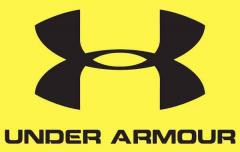Courtesy of Benzinga.
Remember those old Under Armour (NYSE: UA) commercials with the slogan “We Must Protect This House?” Well, it’s fair to say investors don’t think the house will be well protected in the coming quarters after Under Armour forecast 2012 revenue growth at the low end of its 20%-25% target. Fourth-quarter margins slipped to 51.6% from 51.7%. Gross margin for 2011 was 48.4% compared with 49.9% in 2010 primarily due to less favorable North American wholesale apparel product margins and the impact of the hats and bags transition in 2011, the company said in a statement.
Combine that with the revenue guidance and traders have the perfect excuse to do some damage on what was a richly valued growth stock heading into today. Prior to the start of trading Thursday, shares of Maryland-based Under Armour had surged almost 44% in the past year. That’s roughly double the return offered by rival Nike (NYSE: NKE).
There’s also the issue of rising commodity costs. No, Under Armour isn’t an airline. That’s the good news. The bad news is this still an apparel maker we’re talking about and while the iPath DJ-UBS Cotton TR Sub-Index ETN (NYSE: BAL) is been in a death spiral for over a year, cotton prices are still high by historical standards.
Not to mention, some of Under Armour’s synthetics are produced with a petroleum base, exposing the company to oil prices in the process. It’s pretty safe to say that oil prices are not exactly in a bear market these days.
Analysts are mixed on the stock. Earlier this week, Goldman Sachs announced a bullish view of the shares, but prior to that, Auriga lowered its price target on Under Armour to $70. That’s below where the shares reside today.
On Tuesday, Piper Jaffray pointed out the 800-pound gorillas in the Under Armour room: Increased competition and rising inventories.
Piper, which rates Under Armour Neutral with a $74 price target, had this to say:
“Inventory levels at Under Armour have tracked ahead of future sales expectations for four consecutive quarters with inventory growth 24% ahead of next quarter’s top line numbers. Given the unseasonably cool temperatures and slower than anticipated sales with its top customer, Dick’s Sporting Goods, we believe in season business may have been below expectations leading to a potential acceleration in year-over-year growth of inventory levels. We believe this has the potential to impact gross margins in FQ1.”
Rising inventories and even slightly falling sales could mean Under Armour will be forced to sell products at bargain prices just to get them off store shelves and that of course equals declining margins.
The matter of competition, particularly in the form of Nike, cannot be ignored. Nike is almost 12 times the size of Under Armour by market value, but the valuation chasm is noteworthy. Under Armour trades at more than 33 times forward earnings, nearly double Nike’s forward P/E.
Under Armour’s price/book is nearly 50% higher than Nike’s and its price/earnings growth is also a fair bit higher than its Oregon-based rival.
In October, Nike said it had $4.5 billion in cash equivalents. Cash and cash equivalents decreased 14% to $175 million at December 31, 2011 compared with $204 million at December 31, 2010, according to Under Armour’s statement.
Maybe what should be a heated battle for investors’ dollars isn’t all that competitive at all.
Bullish:
Traders who believe that Under Armour will rebound, might want to consider the following trades:
- Long Under Armour with the stock and slightly out of the money call options.
- Long growth ETFs like the Vanguard Growth ETF (NYSE: VUG)
- Long discretionary names through the Consumer Discretionary Select Sector SPDR (NYSE: XLY).
Bearish:
Traders who believe that Under Armour is in for more declines, may consider alternative positions:
- Long BAL is a way of playing UA’s cotton problems.
- Long Nike on the potential for UA to lose market share.
- Short UA and other mid-cap growth names.
Neither Benzinga nor its staff recommend that you buy, sell, or hold any security. We do not offer investment advice, personalized or otherwise. Benzinga recommends that you conduct your own due diligence and consult a certified financial professional for personalized advice about your financial situation.
For more Benzinga, visit Benzinga Professional Service, Value Investor, and Stocks Under $5.




